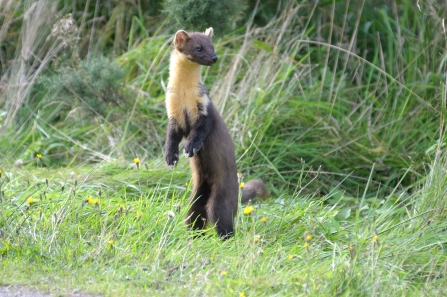So a New Year is upon us. We’ve taken down the Christmas decorations and we’re all getting back into work mode for the year ahead. What does that year ahead look like for the natural world? The natural world is struggling at the moment to keep its head above water despite the best efforts of many committed organisations like the Wildlife Trusts and many individuals. Overall nature is in decline and we need to think about what else needs to be done to help wildlife recover and flourish in the UK and indeed globally. This is an urgent task.
Wildlife in parts of Derbyshire is facing serious problems. The uplands of the Dark Peak in is one such area. Driven grouse shooting and the intensive land management associated with this sport continues to deprive our uplands of the full range of wildlife that should be present in this landscape. It was shocking that last year not one pair of peregrines was able to nest successfully in these uplands – yet this is the area where peregrines recolonised in Derbyshire in the 1960s. The uplands should also be alive with other iconic birds of prey like the hen harrier and the goshawk. They are not.
Mountain hare populations should also be thriving in these areas. Foxes, weasels and stoats are trapped out of existence to protect red grouse populations from predation. Our uplands are also being regularly set on fire to encourage new heather growth for red grouse and our peatbogs are being damaged. Burning leads to the release of carbon contributing to climate change and this intensive management has been linked to increased flooding risk downstream and increased colouring of water in our reservoirs.




